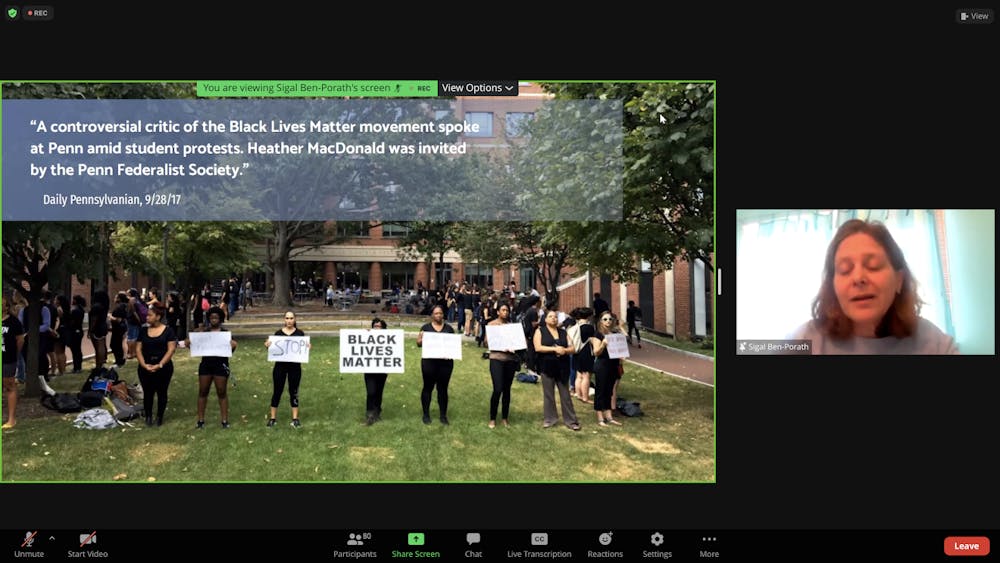By Karla Fonseca
Staff Writer
The College held a virtual meeting with Sigal Ben-Porath, author of “Free Speech on Campus” and faculty at the University of Pennsylvania on Feb. 11. The session was hosted by Tacquice Davis, assistant vice president for Inclusive Excellence, and Jordan Draper, assistant vice president for Student Affairs & dean of Students.
The Instructional Technology Services, a facility that offers services including developing instruction media and printing, was in charge of printing the materials needed. The virtual session entitled “Free Speech and Inclusion on Campus” discussed how free and open expression should be handled on a college campus, all the while maintaining an inclusive environment for students.
The session was displayed via an open Zoom format. Ben-Porath presented an open demeanor, allowing participants to freely become involved if desired. The session consisted of a powerpoint presentation on the topic of open expression and inclusion which was then followed by a Q&A.
Ben-Porath, a doctor of political philosophy, was a chair for the University of Pennsylvania Committee on Open Expression from 2018 to 2019 and performs extensive research on preserving and strengthening democracy in institutions.
Ben-Porath’s time chairing for the Committee on Open Expression motivated her research in this subject.
“When I was chairing Penn’s Committee on Open Expression a few years back, I am no longer in this role, I’ve finished my time served. I really recognized that some of the perspectives on free speech have become polarized in a way that really makes them ineffective for addressing the needs of universities and colleges,” Ben-Porath said.
Dr. Arthur Hohmuth, a professor in the College's psychology department, is part of the community who feels free speech is limited.
“One of the things that concerns me is the Anti-Racism Initiative because I worry that that could come into conflict with free speech,” he said. “I do know of faculty members who have said that they’re afraid to express themselves freely when it comes to matters of race and racism. It’s a very fine line between not wanting to offend people and feeling that you can’t speak your mind freely.”
The goal of Ben-Porath’s work is to unite open expression and inclusion.
“This work is really an effort to bridge my ideas on democratic theory and the role of Open Expression in protecting democracy,” she said. “I want to try and show a way both theoretical and practical to navigate and balance the two of them and really incorporate the two of them on college campuses.”
Ben-Porath attributes concerns for free speech on campus to the increased polarization of the country, as well as “affective polarization,” which she described as “seeing people's views about the other party as increasingly negative.”
“I think [Ben-Porath] came down pretty strongly on the side of free speech and that people should be able to say things that you might find offensive,” said Hohmuth. “I had, after certain experiences, decided to mind my words carefully. After listening to her, I thought, ‘No, maybe I shouldn't do that,’ and risk erring in the other direction in order to maintain free speech.”
Ben-Porath also discussed how people may not be seekin attention for selfish gains rather than an open and honest dialogue.
“They are not trying to persuade you, they are trying to enrage you,” she said. “If you are not having this emotional response, you win.”
Ben-Porath has brought a new perspective to the College, and with it, further accomplishing the mission of higher education. By focusing on and enriching productive dialogue, the campus can hope to become a more expressive and inclusive space for every person.
“Most of what we can get out of college is hearing each other and just engaging with each other, and so when you are speaking up and sharing your opinions even when they are different from other people’s, then really you are supporting them and you are giving them the gift of reconsidering their own views,” Ben-Porath said.







